
The Enchanting Maze of Fes
Fes, one of Morocco's ancient imperial cities, is a mesmerizing blend of history, culture, and vibrant life. Founded in the 9th century, it remains an important cultural and spiritual hub. It's famed for its sprawling medina, a labyrinthine network of narrow alleys filled with bustling souks, historic madrasas, and traditional tanneries. This UNESCO World Heritage site is one of the world’s largest car-free urban areas, offering visitors a unique step back in time. As you wander through the old city's gates, you'll be greeted by a feast for the senses. The scent of spices fills the air, the colorful displays of handcrafted goods catch your eye, and the sounds of artisans at work create a lively soundtrack. Key attractions include the University of Al Quaraouiyine, the oldest existing, continually operating higher educational institution in the world, and the Bou Inania Madrasa, a masterpiece of Marinid architecture. Beyond the medina, Fes el-Jdid, or New Fes, offers its own treasures, including the Royal Palace and the Mellah, the historic Jewish quarter. For a panoramic view of the city, head to the Merenid Tombs. Here, you can see the sprawling urban landscape set against the backdrop of rolling hills. Fes is not just a city to see; it is a city to experience, with every turn in its winding streets revealing a new story.
Local tips in Fes
- Wear comfortable shoes. The cobblestone streets of the medina can be uneven and tiring.
- Hire a local guide. Navigating the medina can be challenging, and a guide can enhance your experience with historical insights.
- Visit the tanneries in the morning. The colors are more vibrant, and you can observe the traditional leather-making process in full swing.
- Respect local customs. Dress modestly and be mindful when taking photographs, especially in religious sites.
- Stay hydrated. The climate can be quite hot, especially in the summer months.
Neighbourhoods in Fes
The Enchanting Maze of Fes
Fes, one of Morocco's ancient imperial cities, is a mesmerizing blend of history, culture, and vibrant life. Founded in the 9th century, it remains an important cultural and spiritual hub. It's famed for its sprawling medina, a labyrinthine network of narrow alleys filled with bustling souks, historic madrasas, and traditional tanneries. This UNESCO World Heritage site is one of the world’s largest car-free urban areas, offering visitors a unique step back in time. As you wander through the old city's gates, you'll be greeted by a feast for the senses. The scent of spices fills the air, the colorful displays of handcrafted goods catch your eye, and the sounds of artisans at work create a lively soundtrack. Key attractions include the University of Al Quaraouiyine, the oldest existing, continually operating higher educational institution in the world, and the Bou Inania Madrasa, a masterpiece of Marinid architecture. Beyond the medina, Fes el-Jdid, or New Fes, offers its own treasures, including the Royal Palace and the Mellah, the historic Jewish quarter. For a panoramic view of the city, head to the Merenid Tombs. Here, you can see the sprawling urban landscape set against the backdrop of rolling hills. Fes is not just a city to see; it is a city to experience, with every turn in its winding streets revealing a new story.
When is the best time to go to Fes?
Iconic landmarks you can’t miss
Bab Boujloud
Explore the enchanting Bab Boujloud, the iconic gate to Fes, where history, culture, and vibrant markets await every traveler.
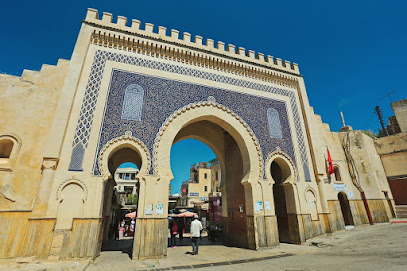
Jnan Sbil
Discover the beauty of Jnan Sbil, a lush garden in Fes, Morocco, offering a serene escape and glimpses of historical heritage.
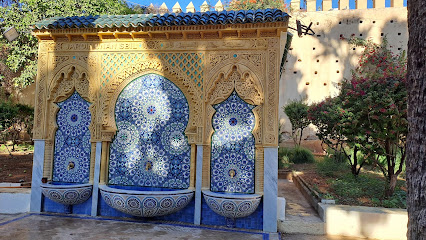
The Royal Palace in Fez
Explore the Royal Palace in Fez, a stunning landmark showcasing Morocco's rich history and exquisite architectural beauty.
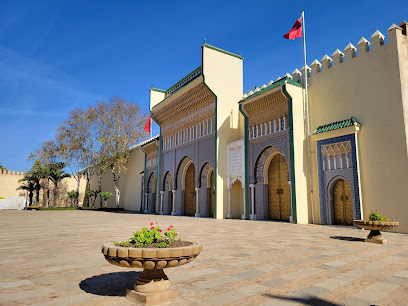
Bab Rcif
Discover the enchanting Bab Rcif, an iconic gateway to Fes, Morocco, where history, culture, and vibrant markets await every traveler.
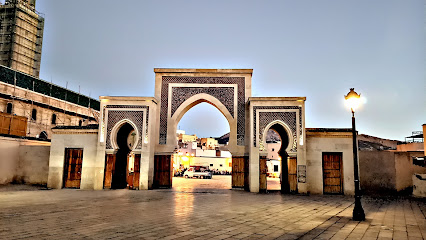
Al Attarine Madrasa
Discover the Al Attarine Madrasa, a stunning historical landmark in Fes that showcases the beauty of Moroccan architecture and rich cultural heritage.

The Ruined Garden
Experience the rich flavors of Morocco in the serene ambiance of The Ruined Garden, a culinary gem in the heart of Fes.
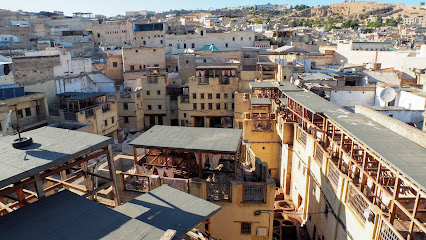
Marinid Tombs
Uncover the historical treasures of the Marinid Tombs in Fes, where ancient architecture meets stunning landscapes.
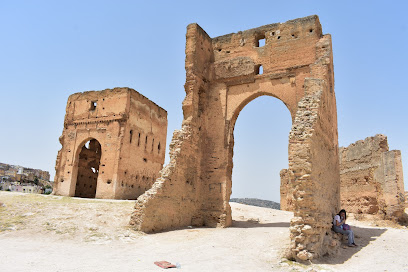
Semmarin Medina Gate
Explore the historic Semmarin Medina Gate in Fes, a stunning architectural gem that embodies Morocco's rich cultural heritage and vibrant atmosphere.
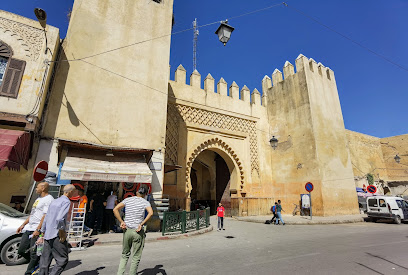
Nejjarine Museum of Wooden Arts & Crafts
Explore the artistry of Moroccan woodworking at Nejjarine Museum of Wooden Arts & Crafts, a captivating tourist attraction in the heart of Fes.
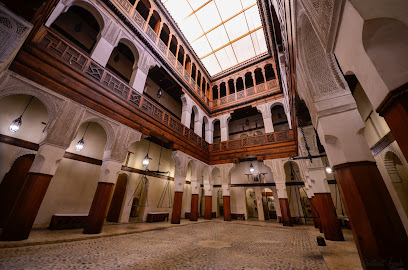
Borj Sud
Explore Borj Sud, a stunning historical landmark in Fes, Morocco, where history meets breathtaking views and architectural beauty.
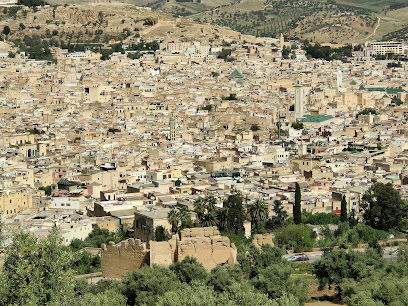
Borj Nord Museum
Discover the Borj Nord Museum in Fes, a historical landmark showcasing Morocco's military heritage with stunning views and captivating exhibits.
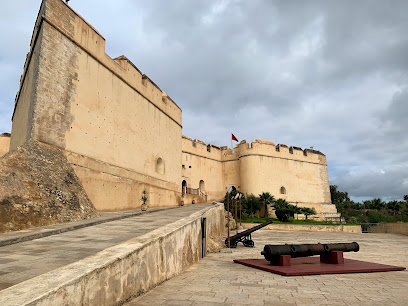
Bab Sidi Boujida
Explore the historical marvel of Bab Sidi Boujida, a gateway to the medina of Fes, where culture, architecture, and tradition converge in vibrant harmony.
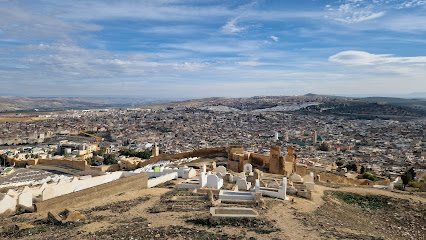
Henna Souk
Immerse yourself in the vibrant culture of Fes at Henna Souk, where the art of henna and local crafts come together in a lively Moroccan market.
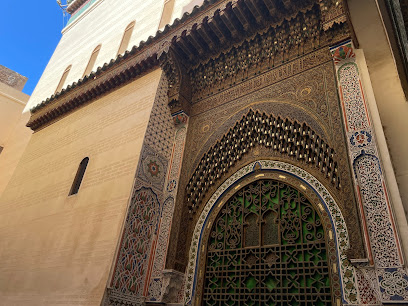
Bou Inania Madrasa
Discover the timeless beauty and historical significance of Bou Inania Madrasa in Fes, a UNESCO World Heritage site showcasing exquisite Islamic architecture.
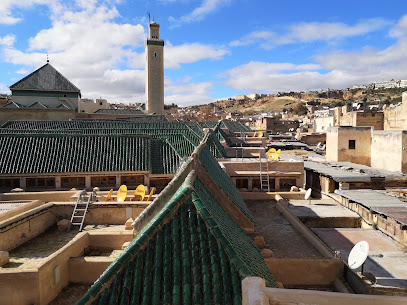
Place Seffarine
Explore the vibrant artisan community and rich history of Place Seffarine, a must-visit landmark in Fes, Morocco, showcasing exquisite traditional craftsmanship.
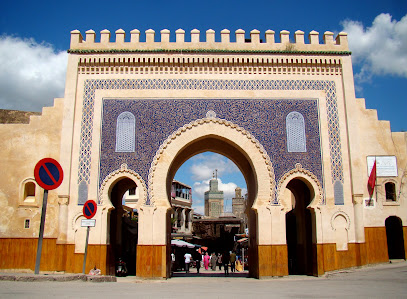
Unmissable attractions to see
Jnan Sbil
Discover the tranquil beauty of Jnan Sbil, a serene garden oasis in Fes, Morocco, perfect for relaxation and exploration amidst lush greenery.
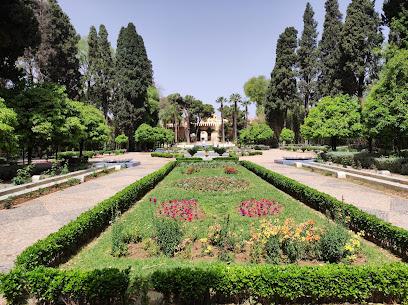
Sidewalk Door
Discover the captivating allure of the Sidewalk Door in Fes, a cultural landmark showcasing Morocco's rich history and vibrant local life.
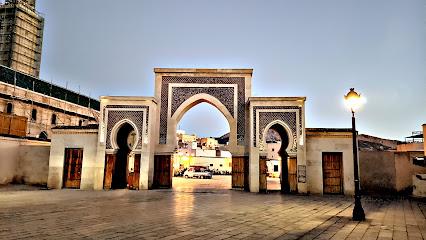
Al Attarine Madrasa
Explore the enchanting Al Attarine Madrasa, a historical landmark in Fes showcasing intricate Moroccan architecture and rich cultural heritage.
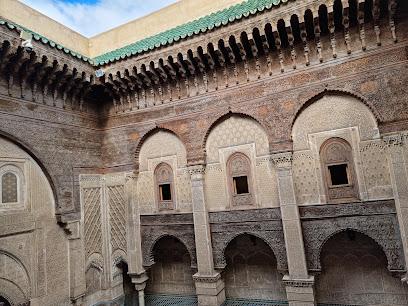
Marinid Tombs
Explore the Marinid Tombs in Fes, a historical landmark showcasing intricate architecture and breathtaking views of the ancient city.
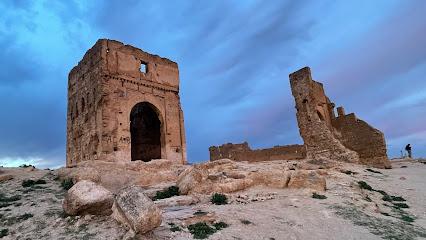
Place de Florence
Discover the serene beauty of Place de Florence, a picturesque garden oasis in the heart of Fes, Morocco, perfect for relaxation and cultural immersion.
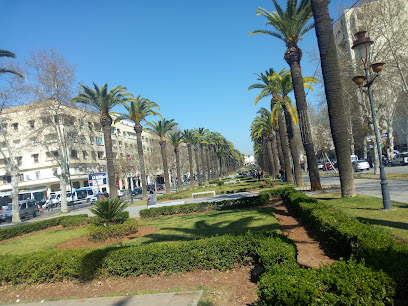
Vichy Thermalia Spa Hôtel Moulay Yacoub Fes
Discover tranquility at Vichy Thermalia Spa Hôtel Moulay Yacoub, a premier wellness hotel blending luxury with the healing power of thermal baths.

Nejjarine Museum of Wooden Arts & Crafts
Discover the rich heritage of Moroccan craftsmanship at the Nejjarine Museum of Wooden Arts & Crafts in historic Fes.
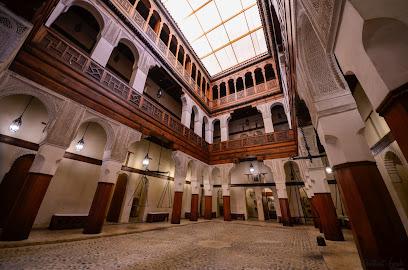
Hammam Mernissi & Spa
Discover the traditional Moroccan wellness experience at Hammam Mernissi & Spa in Fes, where relaxation and rejuvenation await.
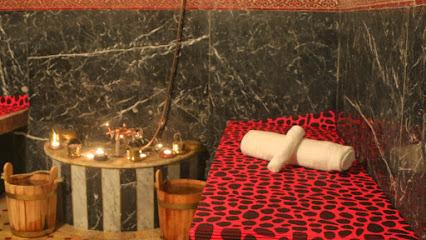
Borj Sud
Explore Borj Sud in Fes, Morocco - a historical landmark that offers stunning views and a glimpse into the region's rich past.
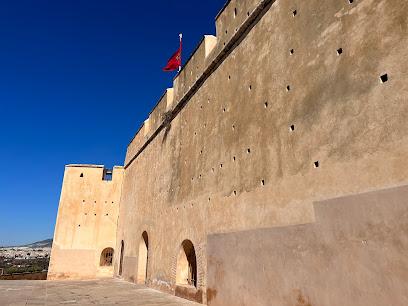
Bab Khoukha
Explore the historic Bab Khoukha in Fes, a stunning gateway showcasing Morocco's rich cultural heritage and architectural beauty.
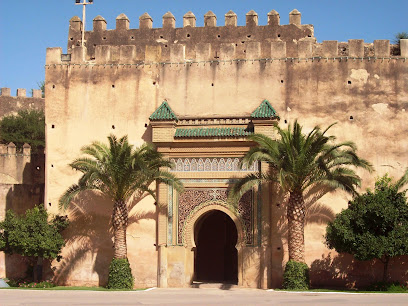
Borj Nord Museum
Discover the captivating military history of Morocco at Borj Nord Museum, a historical landmark offering stunning views and rich cultural insights.
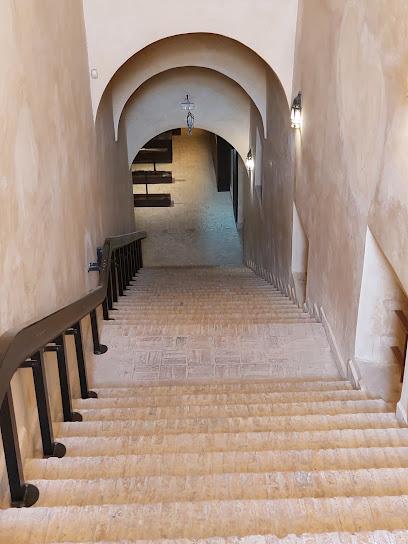
Henna Souk and pottery
Discover the enchanting Henna Souk and Pottery Market in Fes, a vibrant hub of Moroccan culture and craftsmanship, perfect for unique souvenirs.
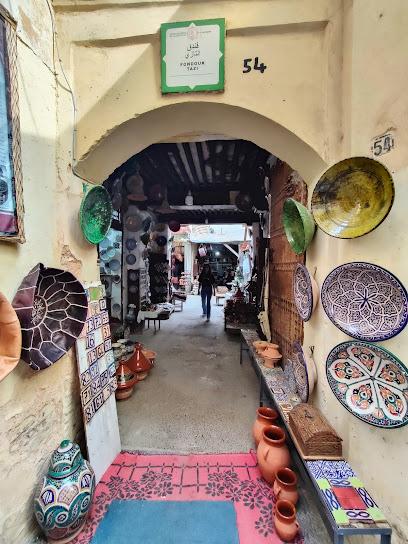
Bou Inania Madrasa
Explore Bou Inania Madrasa, a stunning 14th-century seminary in Fes, showcasing intricate Moroccan architecture and rich cultural heritage.
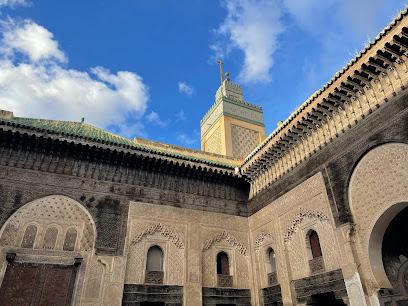
Chouara Tannery
Explore the vibrant Chouara Tannery in Fes, a historic site showcasing traditional leather tanning techniques and colorful artistry unique to Morocco.
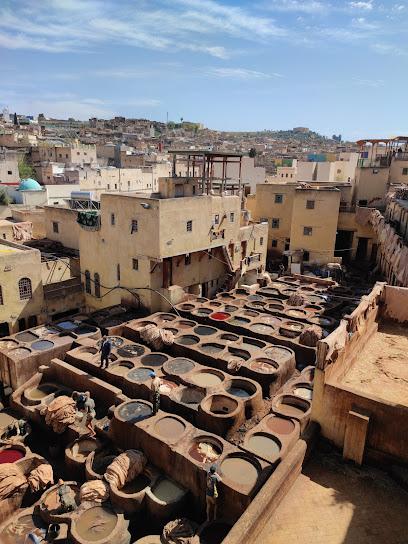
Andalusian Mosque
Explore the Andalusian Mosque in Fes, a stunning example of Islamic architecture and a cultural cornerstone in Morocco's historical landscape.
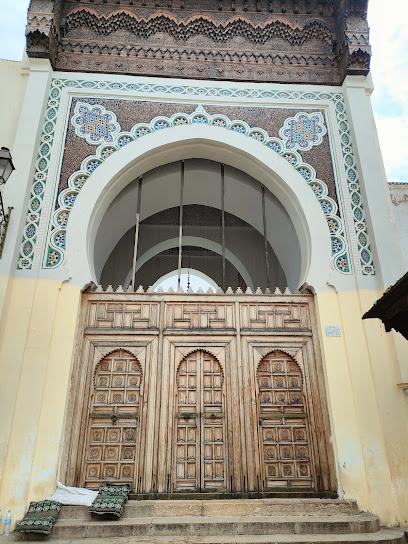
Essential places to dine
Cafe Clock
Experience authentic Moroccan flavors at Cafe Clock in Fes - where tradition meets contemporary dining in a vibrant atmosphere.
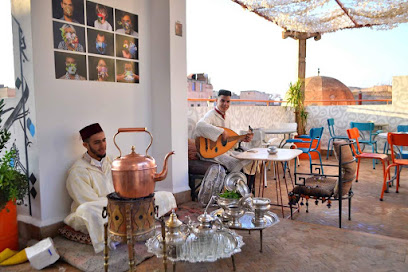
The Ruined Garden
Experience authentic Moroccan flavors in an enchanting garden setting at The Ruined Garden in Fes.
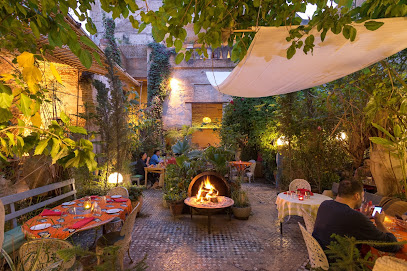
Le Tarbouche
Savor authentic Moroccan flavors at Le Tarbouche in Fes – where tradition meets culinary delight.
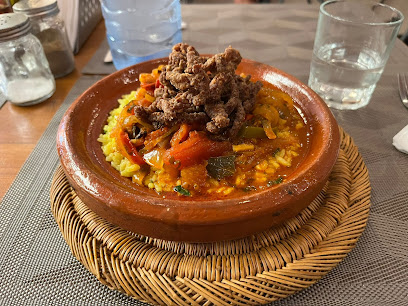
La Breva
Experience authentic Moroccan breakfasts at La Breva in Fes – where tradition meets flavor in every bite.
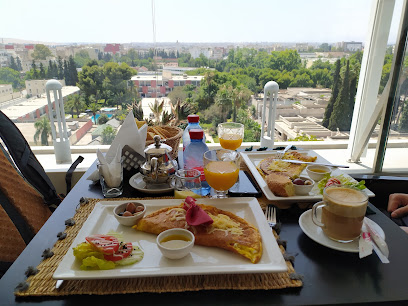
Cinema Cafe
Experience authentic Moroccan cuisine at Cinema Cafe in Fes—where tradition meets casual dining in a welcoming atmosphere.
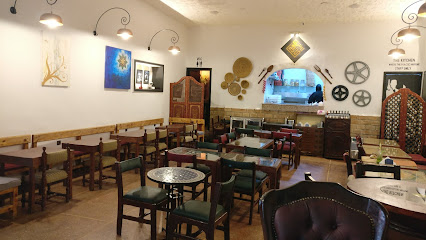
Chez Hakim
Experience authentic Moroccan flavors at Chez Hakim in Fès - a family-friendly restaurant serving delicious traditional cuisine.
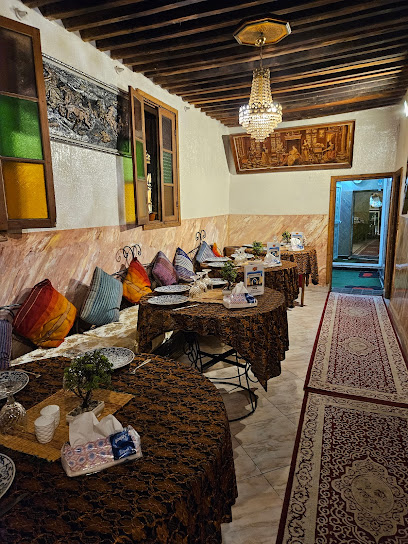
Fondouk Bazaar
Experience authentic Moroccan cuisine at Fondouk Bazaar - where tradition meets taste in the heart of Fes.
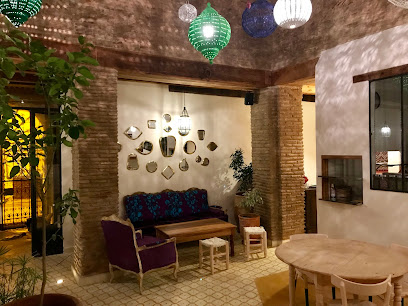
Palais La Médina
Discover exquisite Moroccan cuisine at Palais La Médina - a culinary gem in Fes offering authentic flavors and enchanting ambiance.
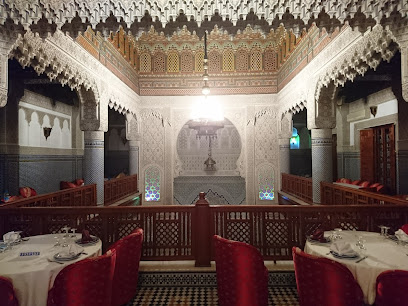
Mom's touch
Discover authentic Moroccan cuisine at Mom's Touch in Fes - where tradition meets flavor in a cozy setting.
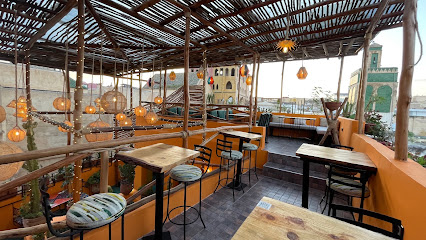
La Cave
Discover La Cave in Fes: A unique fusion of Haute French cuisine with Moroccan flavors in an enchanting setting.
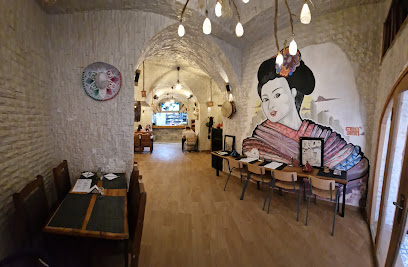
Restaurant MB
Experience French culinary excellence at Restaurant MB in Fes—where sophistication meets flavor in a stunning lounge atmosphere.
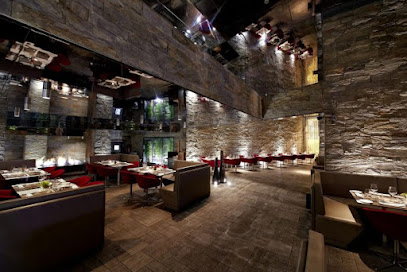
Al Oud
Experience authentic Moroccan flavors at Al Oud in Fes El Bali—where tradition meets taste in a charming setting.
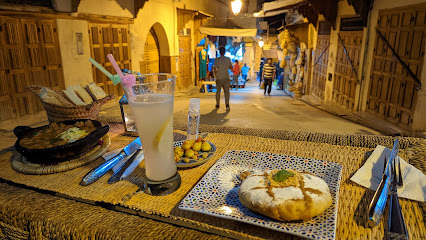
Nagham Cafe
Savor authentic Moroccan cuisine and fast food delights at Nagham Cafe in Fès – where every bite tells a story.
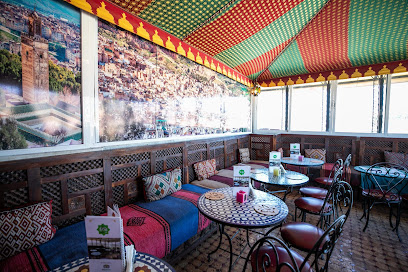
Darori
Discover the exquisite blend of Moroccan tradition and haute French cuisine at Darori in Fes – an unmissable dining experience.
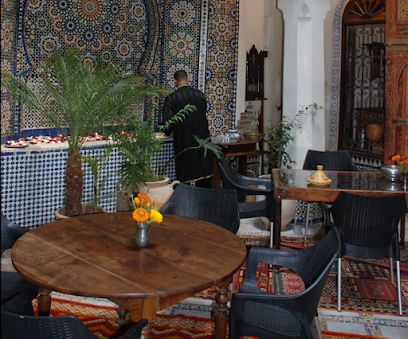
Fez & Friends
Discover authentic Moroccan flavors at Fez & Friends - a culinary oasis in Fes where tradition meets hospitality.
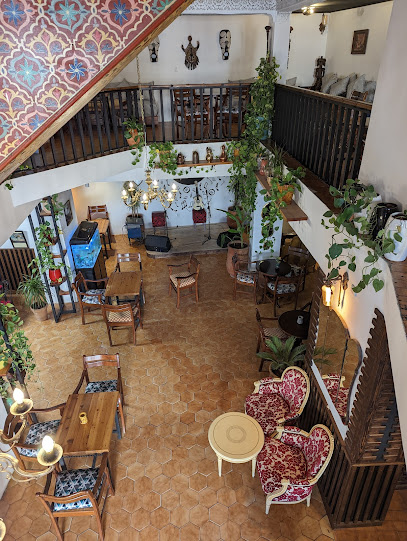
Markets, malls and hidden boutiques
برج فاس
Discover the best of shopping and dining at Borj Fes, a vibrant mall in Fes, Morocco, blending modern retail with local culture.
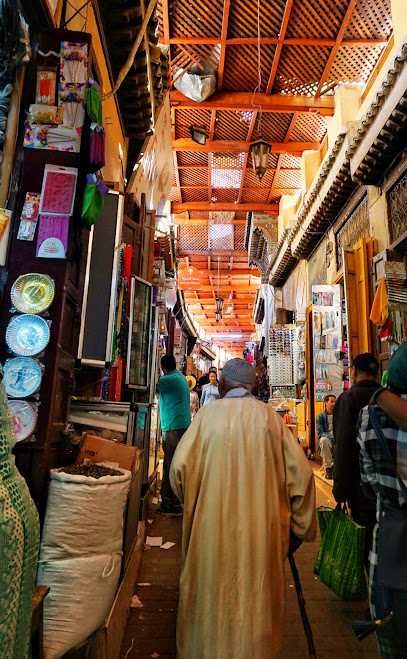
Cooperative artisanal de fes
Explore handcrafted Moroccan treasures at Cooperative Artisanal de Fes, where tradition meets creativity in a vibrant marketplace.
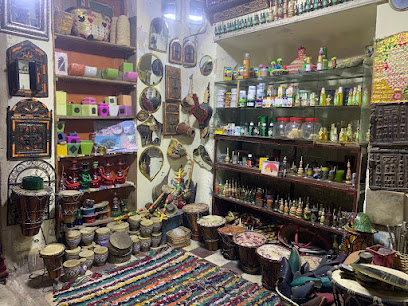
Coin Berbere Carpets & Antiques
Explore the exquisite carpets and unique antiques at Coin Berbere, a family-owned gem in the heart of Fes, Morocco.
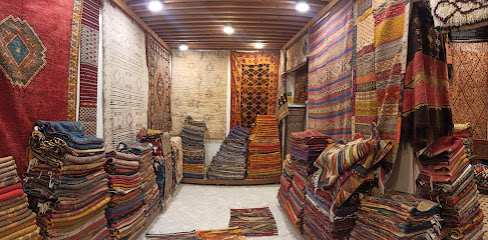
Medin Art
Discover authentic Moroccan handicrafts at Medin Art in Fes, where tradition meets creativity in a beautiful collection of unique treasures.
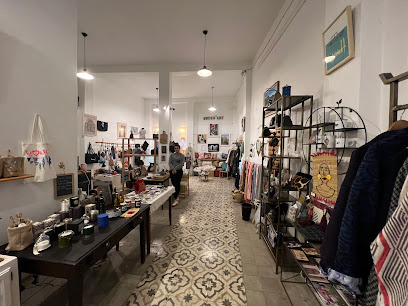
️ iCloud Shop (Revendeur Agréé Apple a Fes)
Explore cutting-edge Apple products at the iCloud Shop in Fes, the ultimate destination for tech enthusiasts and travelers alike.
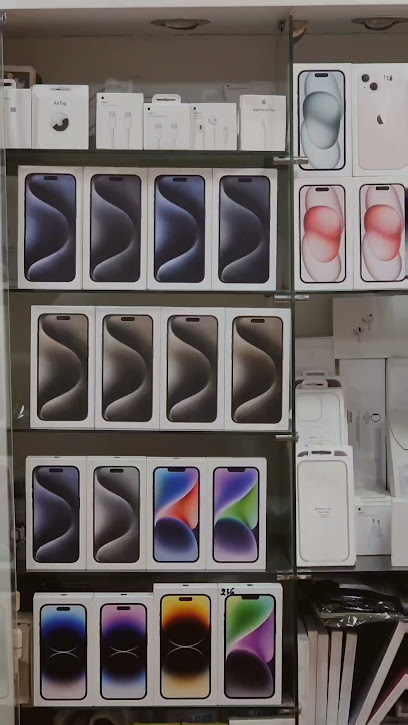
MINISO
Explore MINISO at Borj Fes Mall for trendy fashion accessories that blend style and affordability in the heart of Fes.
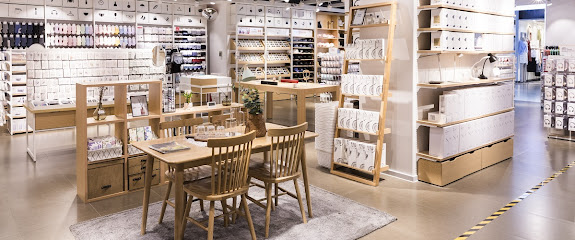
Art fez
Explore Art Fez in Fes El Bali for unique gifts and handcrafted shoes that embody Moroccan artistry and culture.
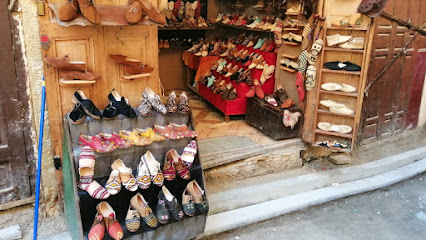
dream shop fes
Discover the best of beauty at Dream Shop Fes, your ultimate destination for cosmetics and skincare in the heart of Morocco.
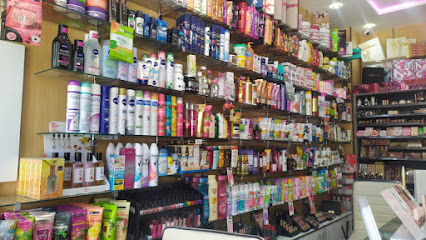
Fes Antiques
Explore Fes Antiques: A mesmerizing blend of art, antiques, and Moroccan craftsmanship in a unique gift shop experience.
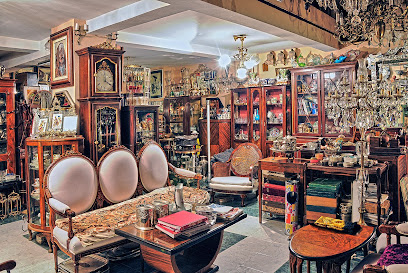
Madoulita
Explore Madoulita, a vibrant clothing store in Fes offering a unique blend of traditional Moroccan styles and contemporary fashion for every taste.
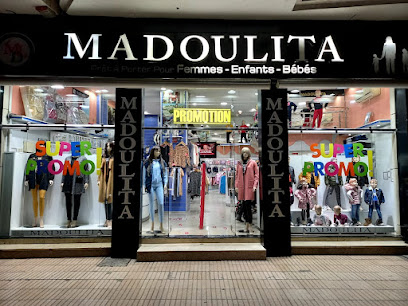
متجر فاس - Fes store
Explore Fes Store, a treasure trove of Moroccan crafts and unique souvenirs in the heart of Fes, perfect for every traveler seeking authentic experiences.
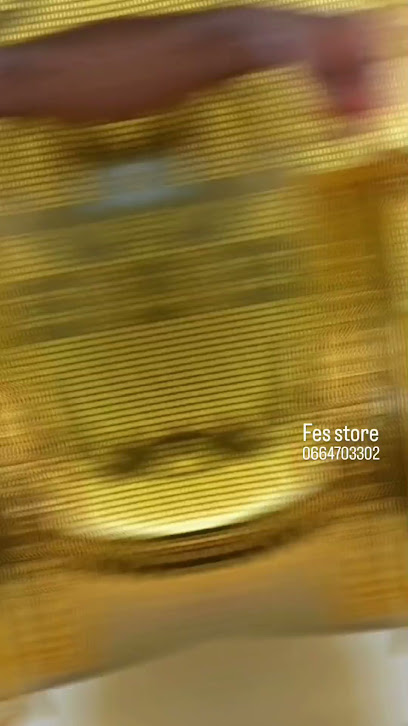
Les Articles du Rif
Discover unique Moroccan craftsmanship at Les Articles du Rif, a charming home goods store in the heart of Fes, perfect for authentic souvenirs.
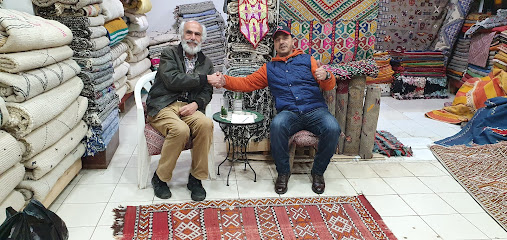
Dragon_vape_shop
Explore the vibrant vaporizer scene at Dragon Vape Shop in Fès, where quality meets expertise in the heart of Ville Nouvelle.
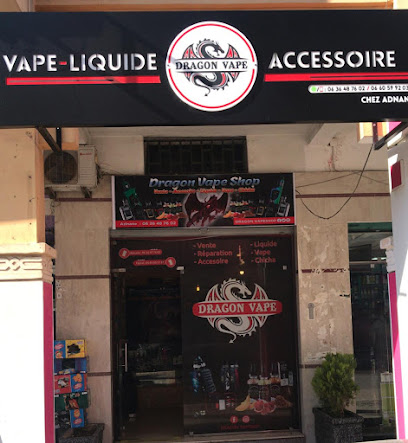
La Petite Maison Berbere
Explore the exquisite craftsmanship at La Petite Maison Berbere, the premier rug store in Fes, showcasing Morocco's rich textile heritage.
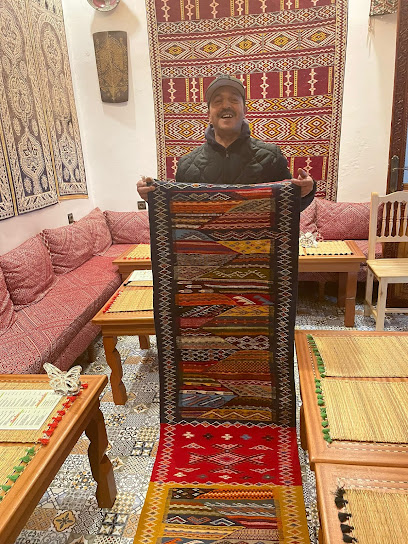
Elena shop
Discover unique women's fashion at Elena Shop in Fes, where quality meets Moroccan charm for an unforgettable shopping experience.
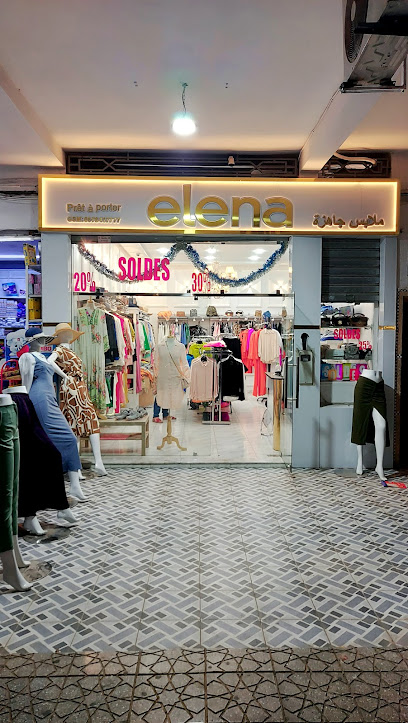
Essential bars & hidden hideouts
Mezzanine
Experience the vibrant rooftop lounge in Fes, where stunning views meet delectable cuisine, creating the perfect escape for tourists.
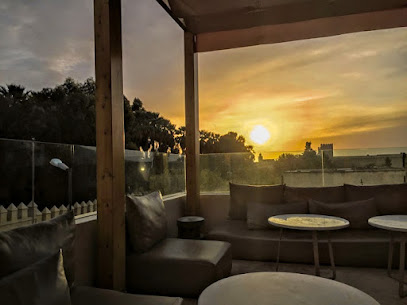
Café Calairis
Discover the charm of Fes at Café Calairis, where Moroccan hospitality meets cozy relaxation in the heart of Ville Nouvelle.
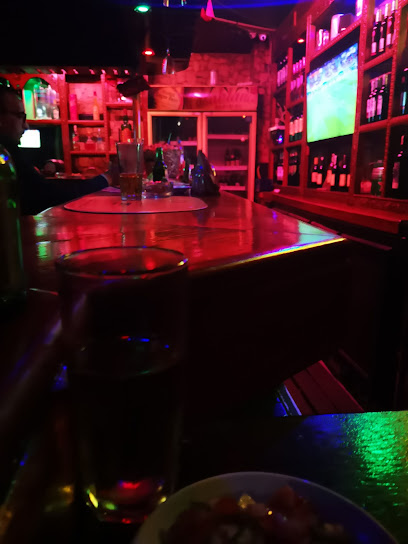
Zen garden
Discover tranquility and natural beauty at the Zen Garden in Fès, a serene escape amidst the vibrant culture of Morocco.
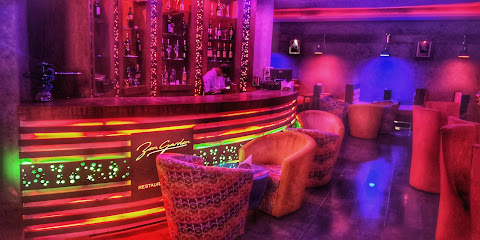
Bar Café Dalila
Experience the vibrant atmosphere and delicious Moroccan cuisine at Bar Café Dalila in the heart of Fes, Morocco.
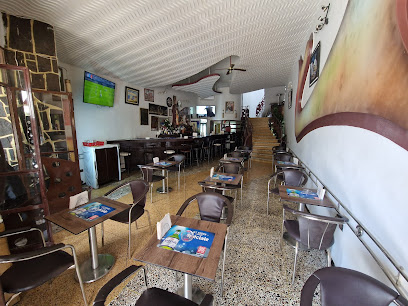
Eden chope bar
Experience the vibrant nightlife of Fès at Eden Chope Bar, where traditional flavors meet modern mixology in a cozy setting.
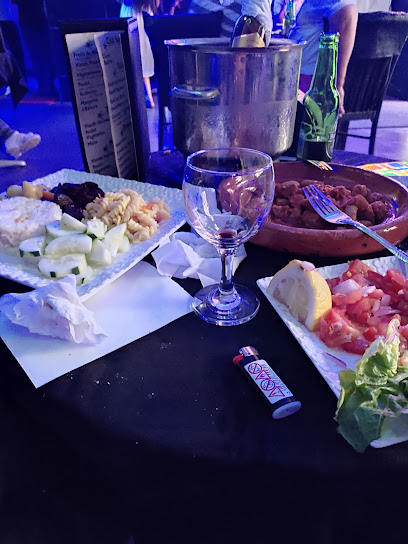
blue wall
Discover the vibrant Blue Wall Bar in Fes, where local flavors and friendly vibes come together to create a unique Moroccan experience.

British Saloon
Discover the vibrant British Saloon in Fes, where local charm meets British bar culture for an unforgettable night out.
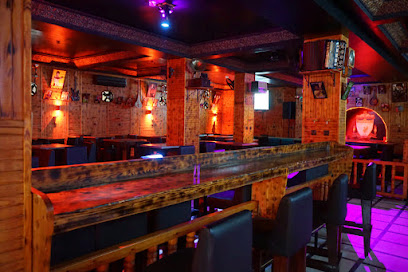
Piccolo Palace
Experience the authentic flavors of Moroccan cuisine at Piccolo Palace, a top-rated grill restaurant in the heart of Fès, perfect for all occasions.
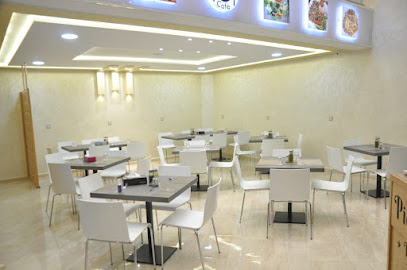
La Medaille
La Medaille: A vibrant live music bar in Fes offering a thrilling nightlife experience with local and international performances.
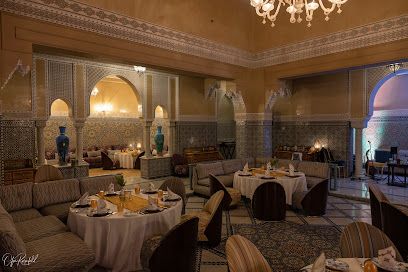
Bar des juifs
Experience the vibrant local culture at Bar des Juifs, a cozy bar in Fes known for its friendly atmosphere and affordable drinks.

Restaurant am
Experience the heart of Moroccan cuisine at Restaurant am, a vibrant bar in Fès offering local flavors and a welcoming atmosphere.
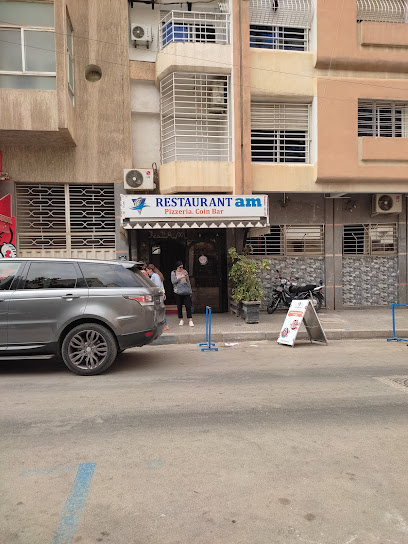
Restaurant-Bar Le voyageur
Discover the vibrant nightlife of Fes at Restaurant-Bar Le Voyageur, where local culture meets a lively atmosphere and a diverse drink menu.
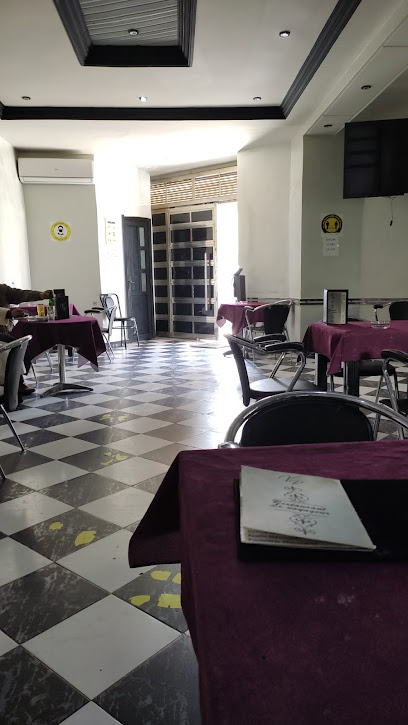
Restaurant LA Noblesse
Experience the vibrant flavors and warm atmosphere of Restaurant LA Noblesse in Fes, where culinary traditions meet modern delights.
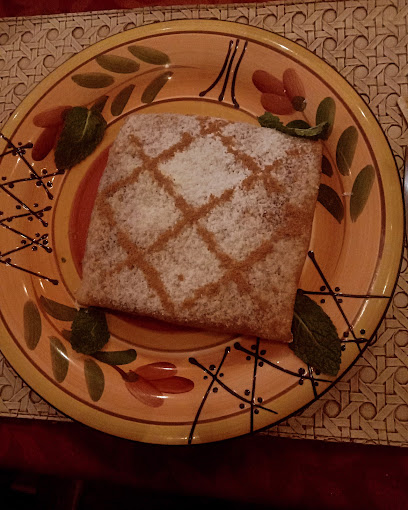
Le Noble Du Terroir
Experience the vibrant atmosphere and local flavors at Le Noble Du Terroir, a charming bar in Fes, Morocco.

Travel experiences inspired by this city
Explore more travel diariesLocal Phrases
-
- Helloسلام
[salaam] - Goodbyeوداعا
[wadaeana] - Yesنعم
[naam] - Noلا
[laa] - Please/You're welcomeمن فضلك
[min fadlik] - Thank youشكرا
[shukran] - Excuse me/Sorryآسف
[aasif] - How are you?كيف حالك؟
[kayfa haluk?] - Fine. And you?بخير. وأنت؟
[bikhayr. wa anta?] - Do you speak English?هل تتحدث الإنجليزية؟
[hal tatahadath al'inglizia?] - I don't understandأنا لا أفهم
[ana la afham]
- Helloسلام
-
- I'd like to see the menu, pleaseأريد أن أرى القائمة، من فضلك
[uriidu an araa alqaimah, min fadlik] - I don't eat meatأنا لا آكل اللحوم
[ana la aakul allahum] - Cheers!في صحتك!
[fi sahtik!] - I would like to pay, pleaseأود أن أدفع، من فضلك
[awadu an adfae, min fadlik]
- I'd like to see the menu, pleaseأريد أن أرى القائمة، من فضلك
-
- Help!النجدة!
[alnajdah!] - Go away!اذهب بعيدا!
[idhab baeedan!] - Call the Police!اتصل بالشرطة!
[itssil bilshurta!] - Call a doctor!اتصل بطبيب!
[itssil bitabib!] - I'm lostأنا ضائع
[ana daae] - I'm illأنا مريض
[ana mareed]
- Help!النجدة!
-
- I'd like to buy...أود أن أشتري...
[awadu an ashtari...] - I'm just lookingأنا فقط أتفرج
[ana faqat atfarij] - How much is it?كم هو ثمنه؟
[kam huwa thamanuh?] - That's too expensiveهذا غالي جدا
[hatha ghali jiddan] - Can you lower the price?هل يمكنك تخفيض السعر؟
[hal yumkinuk takhfeed alsur?]
- I'd like to buy...أود أن أشتري...
-
- What time is it?كم الساعة؟
[kam alsaaah?] - It's one o'clockالساعة الواحدة
[alsaaah alwahidah] - Half past (10)العاشرة والنصف
[alaaashirah walnisf] - Morningالصباح
[assabah] - Afternoonالعصر
[aleasar] - Eveningالمساء
[almasaa] - Yesterdayأمس
[ams] - Todayاليوم
[alyawm] - Tomorrowغدا
[ghadan] - 1واحد
[wahid] - 2اثنان
[ithnan] - 3ثلاثة
[thulatha] - 4أربعة
[arbaah] - 5خمسة
[khamsah] - 6ستة
[sittah] - 7سبعة
[sabah] - 8ثمانية
[thamaniah] - 9تسعة
[tisah] - 10عشرة
[asharah]
- What time is it?كم الساعة؟
-
- Where's a/the...?أين...؟
[ayn...?] - What's the address?ما هو العنوان؟
[ma huwa alaeanaan?] - Can you show me (on the map)?هل يمكنك أن تريني (على الخريطة)؟
[hal yumkinuk an tureeni (ala alkhareetah)?] - When's the next (bus)?متى يأتي الحافلة التالية؟
[mata yaati alhafilat altaliyah?] - A ticket (to ....)تذكرة (إلى ...)
[tadhkirah (ila ...)]
- Where's a/the...?أين...؟
History of Fes
-
Fes, one of Morocco's four imperial cities, was founded in the late 8th century by Idris I, the great-grandson of the Prophet Muhammad. The city quickly attracted a diverse population, including Arabs from Spain and Tunisia, Berbers, and Jews, who contributed to its rich cultural and intellectual heritage.
-
In the 13th century, under the rule of the Marinid Dynasty, Fes reached its zenith as a political, intellectual, and spiritual center. The Marinids established the University of Al Quaraouiyine in 859, which is considered the oldest continuously operating educational institution in the world. They also commissioned the construction of numerous madrasas, mosques, and palaces, many of which still stand today.
-
During the Marinid rule, Fes became renowned for its distinctive architecture and artistic achievements. The intricate stucco work, zellij tilework, and carved wood decorations found in the Al-Attarine Madrasa and Bou Inania Madrasa are prime examples of the city's flourishing artistic culture. These structures remain some of the most beautiful and well-preserved examples of Moroccan architecture.
-
In the 16th century, Fes experienced a period of decline under the Saadi Dynasty, which chose Marrakech as its capital. However, the city was revived in the 17th century by the Alaouite Dynasty, which restored many of its historical buildings and reaffirmed its status as a key cultural and religious center. Sultan Moulay Ismail, one of the most notable Alaouite rulers, commissioned significant restoration and construction projects throughout Fes.
-
In the early 20th century, Morocco became a French protectorate, and Fes underwent substantial changes. The French established a new district, Ville Nouvelle, which introduced modern urban planning and infrastructure. Despite these changes, the historic medina of Fes el-Bali retained its traditional character and continued to be a focal point for artisans and merchants.
-
In 1981, the medina of Fes el-Bali was designated a UNESCO World Heritage Site in recognition of its historical, cultural, and architectural significance. The medina is one of the largest car-free urban areas in the world, and its labyrinthine streets, bustling souks, and ancient monuments offer a glimpse into the city's storied past.
Fes Essentials
-
Fes is accessible by air, rail, and road. The nearest airport is Fes-Saïss Airport (FEZ), which is located about 15 kilometers south of the city. It offers flights to and from major European cities and Moroccan hubs. From the airport, you can take a taxi or a shuttle bus to reach the city center. Fes is also well-connected by train and bus services. ONCF trains run regularly from major cities like Casablanca, Rabat, and Marrakesh. The bus network, including CTM and Supratours, provides another reliable travel option.
-
Within Fes, transportation options include taxis, buses, and walking. The city is divided into Fes el Bali (the old city) and Fes el Jdid (the new city), with many attractions within walking distance in the old city. Petite taxis (small blue taxis) are a convenient way to get around, but make sure they use the meter. Grand taxis are shared and operate on fixed routes. Public buses are available but can be crowded and less reliable. Walking is often the best way to explore the narrow streets of the medina.
-
The official currency in Morocco is the Moroccan Dirham (MAD). Credit cards are accepted in many hotels, restaurants, and shops, but cash is essential for smaller establishments, markets, and taxis. ATMs are widely available in the city, and you can exchange foreign currency at banks and exchange bureaus. It's advisable to carry some cash, especially when exploring the medina or traveling to more remote areas.
-
Fes is generally safe for tourists, but it's important to take standard precautions. Avoid walking alone at night in unfamiliar areas and be cautious with your belongings in crowded places. The medina can be confusing, so consider hiring a licensed guide. Areas like the train station and some parts of the medina can have higher instances of petty crime, so remain vigilant. Always use registered taxis and agree on the fare beforehand if the meter is not used.
-
In case of emergency, dial 19 for the police and 15 for medical emergencies. Hospitals and clinics in Fes provide adequate medical care, but having travel insurance that covers medical emergencies is recommended. Pharmacies are widely available for minor health issues. For lost or stolen items, report to the local police station and obtain a police report for insurance claims.
-
Fashion: Do dress modestly, especially in the medina and religious sites. Avoid revealing clothing. Religion: Do respect local customs and traditions. During Ramadan, avoid eating, drinking, or smoking in public during daylight hours. Public Transport: Do be respectful and patient. Avoid overcrowded buses if possible. Greetings: Do greet people with a handshake. A slight nod of the head is also a sign of respect. Eating & Drinking: Do try local delicacies and accept food offerings graciously. Don't refuse hospitality, as it is considered impolite.
-
To experience Fes like a local, visit the local souks and markets where you can buy fresh produce and traditional Moroccan goods. Engage with locals; they are often friendly and willing to share stories about their city. Don't miss the historic tanneries, where you can observe traditional leather-making processes. For a unique experience, take a stroll through the Andalusian Gardens or explore the Al-Karaouine University, one of the oldest in the world. Enjoy a meal at a traditional riad to savor authentic Moroccan cuisine.
Nearby Cities to Fes
-
Things To Do in Meknes
-
Things To Do in Chefchaouen
-
Things To Do in Tetouan
-
Things To Do in Asilah
-
Things To Do in Tangier
-
Things To Do in Europa Point
-
Things To Do in Gorham's Cave Complex
-
Things To Do in St. Michael's Cave
-
Things To Do in Alameda Botanic Gardens
-
Things To Do in Queensway Quay Marina
-
Things To Do in Catalan Bay
-
Things To Do in Main Street
-
Things To Do in Gibraltar
-
Things To Do in Moorish Castle
-
Things To Do in Casemates Square




























